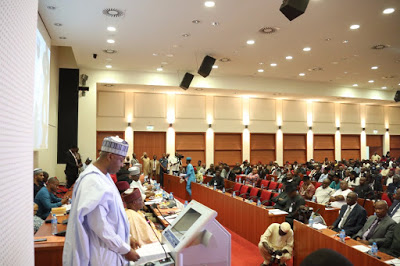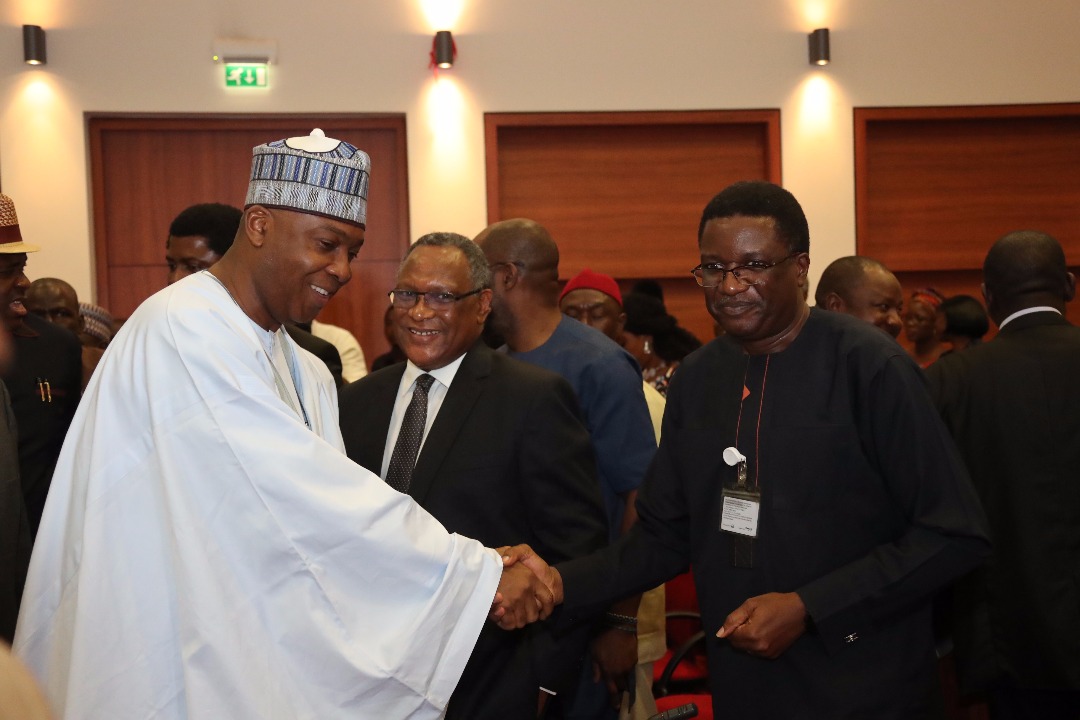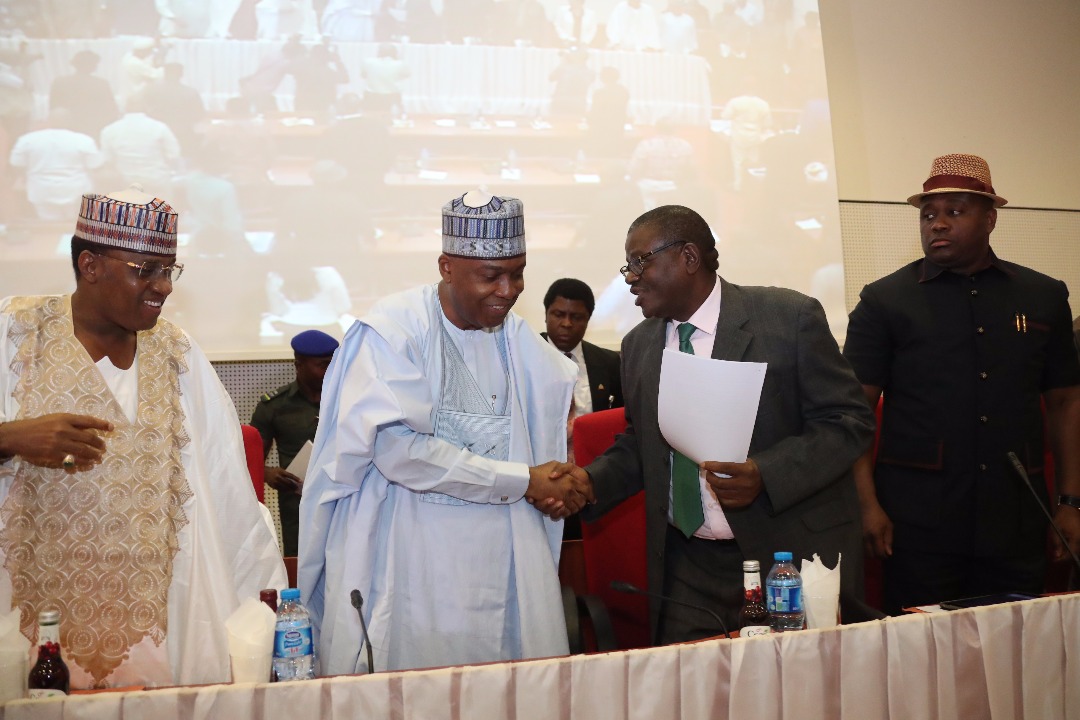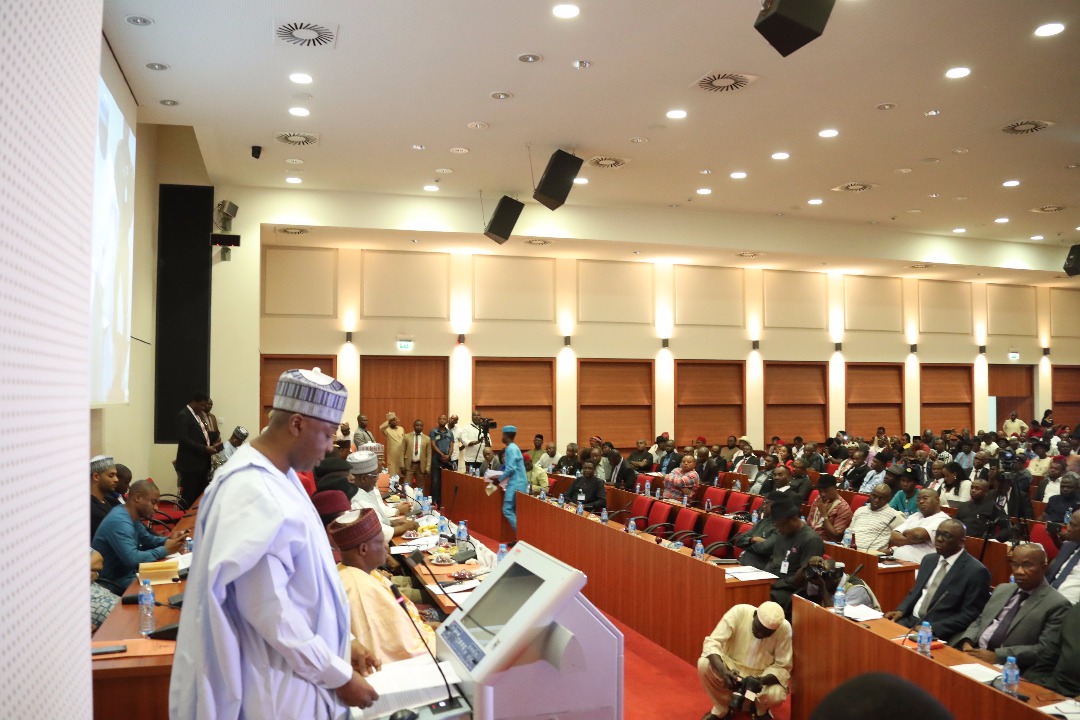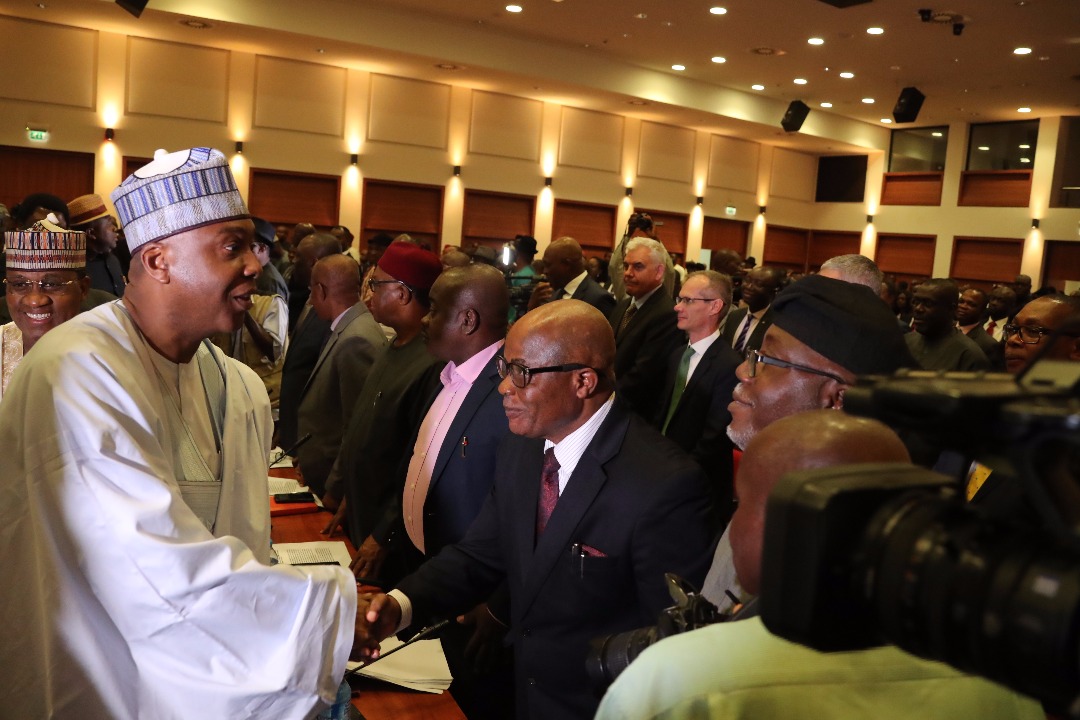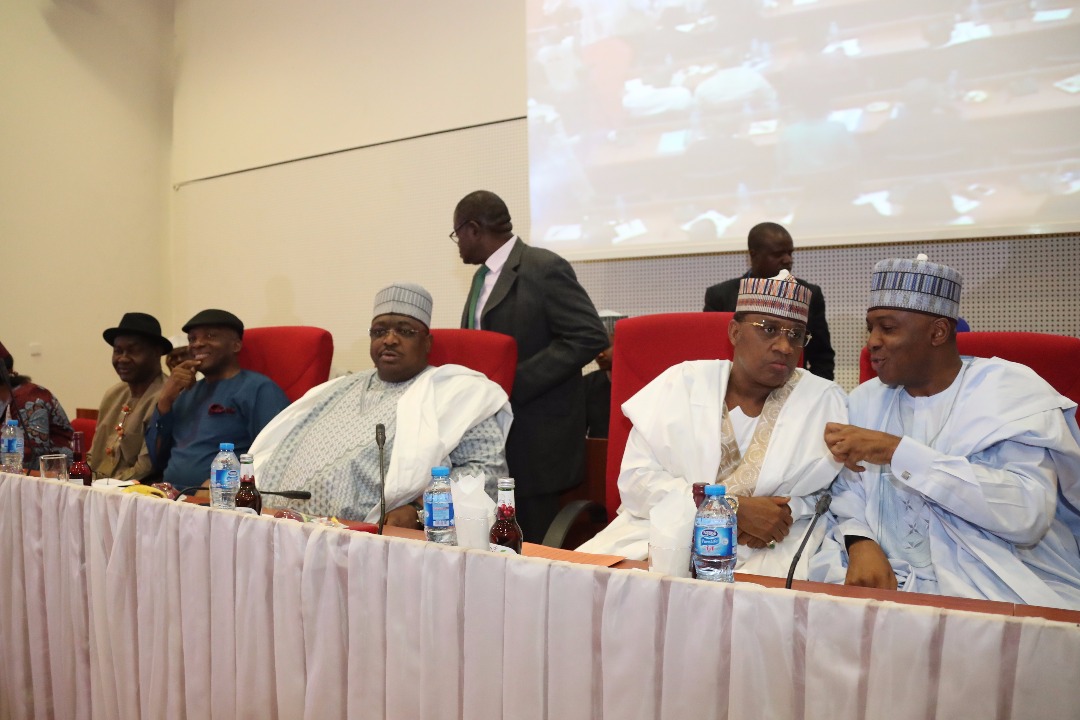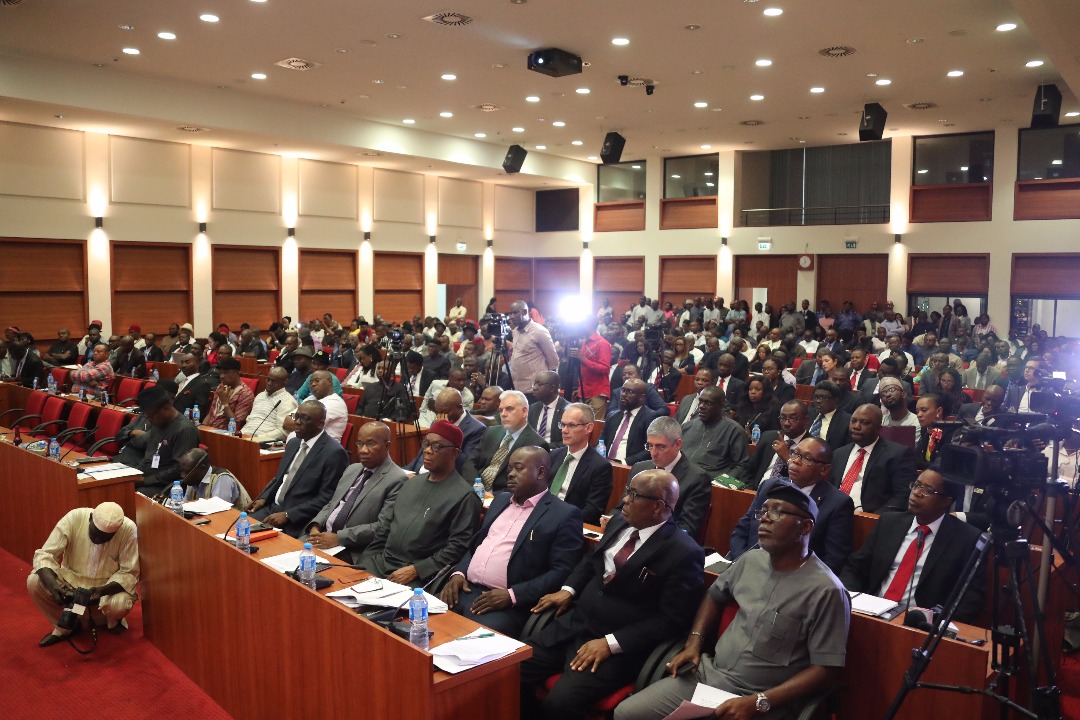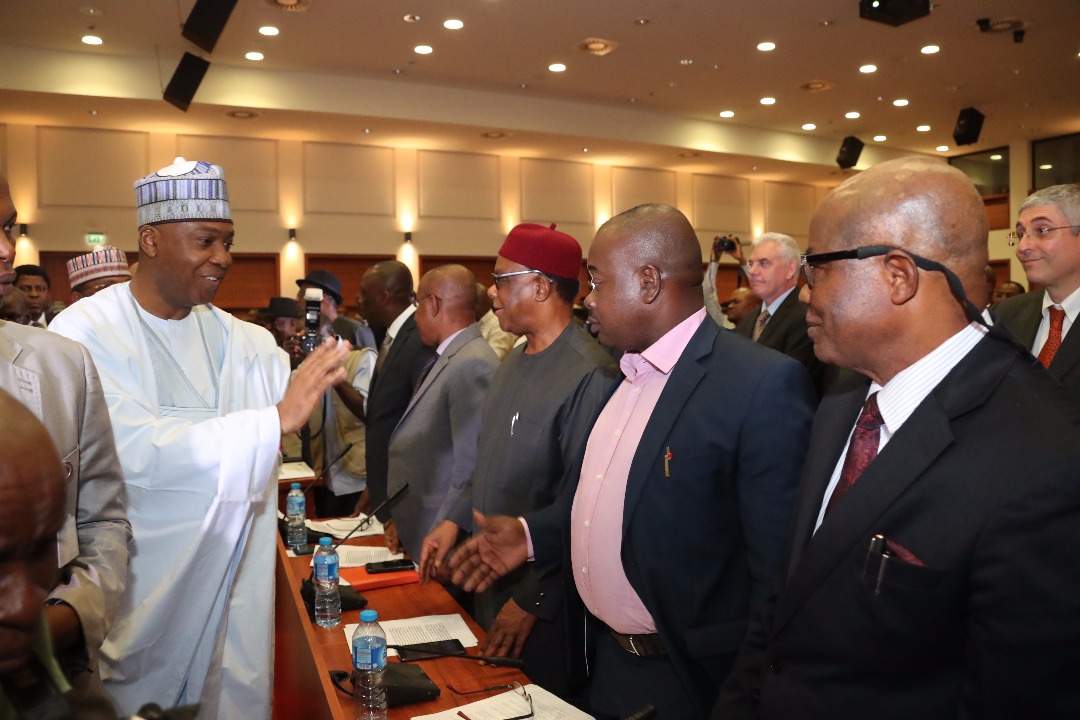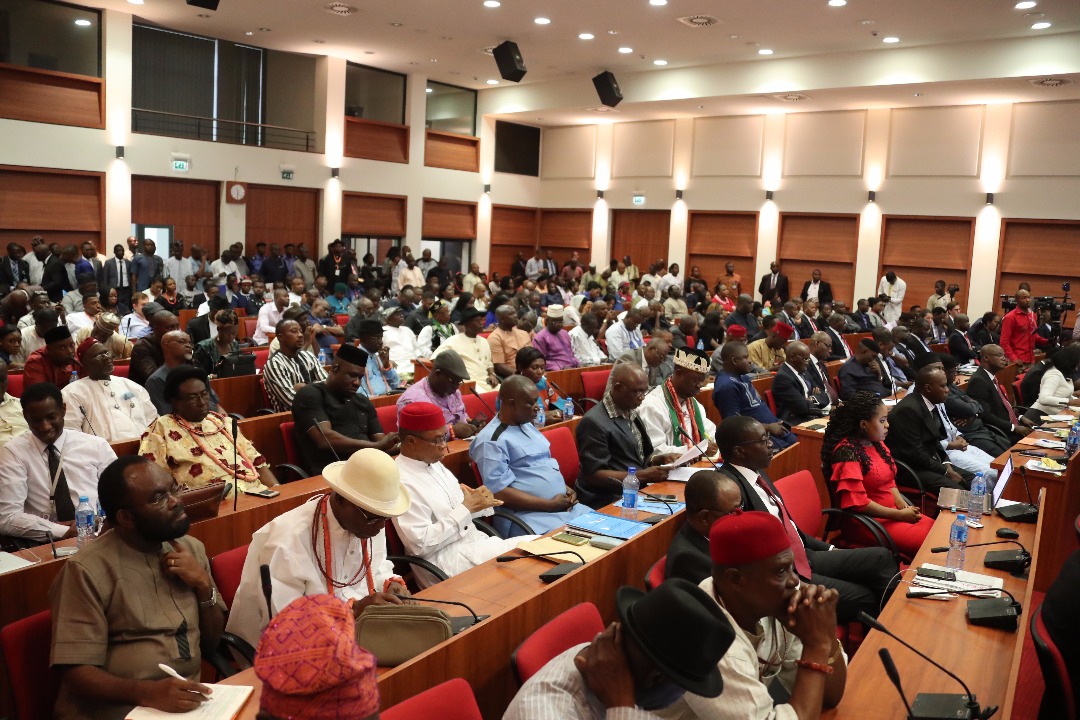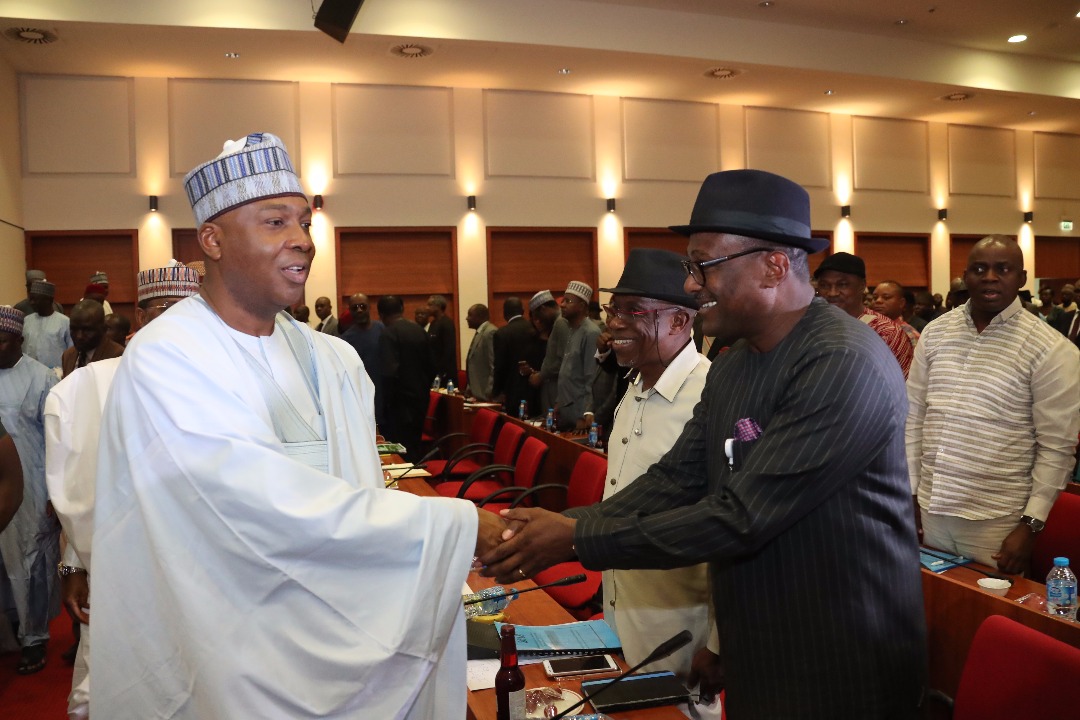OPENING REMARKS BY THE PRESIDENT OF THE SENATE OF THE FEDERAL REPUBLIC OF NIGERIA, HIS EXCELLENCY, (DR.) ABUBAKAR BUKOLA SARAKI, CON, AT THE 3-DAY PUBLIC HEARING ON THE PETROLEUM INDUSTRY BILLS, HELD AT THE NATIONAL ASSEMBLY COMPLEX, ABUJA – JUNE 4, 2018.
PROTOCOL.
1. It is my pleasure to welcome you all to this 3-Day Public Hearing organised by the Senate Committee on the Downstream Petroleum Sector for the consideration of the Petroleum Industry Bills.
2. Specifically, this Public Hearing seeks further input on: the Petroleum Industry Administration Bill 2018; the Petroleum Industry Fiscal Bill 2018; and the Petroleum Host and Impacted Communities Bill 2018. Together, the Bills are part of a combo that was virtually comatose for over a decade as the Petroleum Industry Bill (PIB), before we took the radical approach of breaking the single Bill into workable parts, for greater ease of passage into law.
3. As some of you may recall, the 8th Senate had promised to set in motion an agenda for the comprehensive reform of the Nigerian oil and gas industry, and to do so through an unbundled package of Bills. Our reform agenda is driven by the need to overhaul a system that has led to corruption being endemic in the petroleum industry.
4. We are also motivated by the desire to usher in an internationalised framework that allows Nigeria to compete globally in terms of this industry. This would lead to the development of the local market; and the efficient use of this depleting resource, the ebb and flow of which have been so indelibly tied to the economy of the country. It is high time we stabilised the system, and to stabilise it for good.
5. With all this in mind, we took two critical decisions when we commenced work in the 8th Senate in 2015:
i. The first was to split the Petroleum Industry Bill (PIB) into five (5) Bills, namely: the Petroleum Industry Governance Bill, the Petroleum Industry Administration Bill, the Petroleum Industry Fiscal Bill, the Petroleum Host and Impacted Communities Bill, and the Petroleum Revenue Management Bill.
ii. The second decision was to encourage private member sponsorship of the Bills.
6. We recently passed the PIGB but at point of harmonization review, certain minor observations were made which we immediately directed our conference committee to act on. We are hopeful to have it back on the floor for adoption in a week. It is my expectation that, when work is concluded on the trio of Bills under consideration at this hearing, the Senate will start the process on the Petroleum Revenue Management Bill, which would reshape how we utilise the resources we earn from oil and gas.
7. Distinguished ladies and gentlemen, permit me to outline the key provisions of the Bills under consideration at this Public Hearing. The objective of the Petroleum Industry Administration Bill is to transform the administration of the upstream, midstream and downstream sectors of the Nigerian petroleum industry:
i. Firstly, the Bill creates a framework that will free up acreages that are not being developed by current license and lease holders, thereby creating opportunities for new investors. This will bring substantial new investment to our oil and gas industry.
ii. Secondly, it ensures effective management of the environment by petroleum operators and administrators.
iii. Thirdly, it provides a framework to unleash midstream activities which will open up the market for the supply of gas and other downstream products, for economic growth. Above all, I believe the most important feature of this Bill is that it provides much needed legal backing for the deregulation of our downstream petroleum sector.
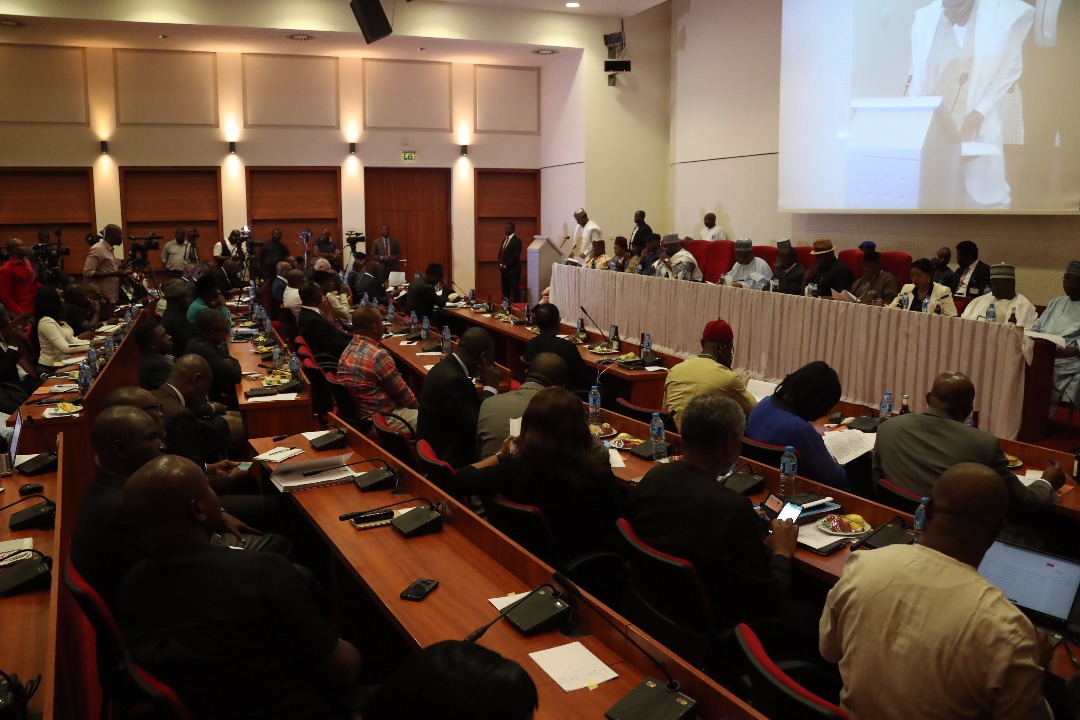
8. Regrettably, our existing fiscal framework for the petroleum industry is outdated. The Petroleum Industry Fiscal Bill, therefore, aims to fix the anomalies, especially with regard to our royalty and tax regimes. For instance, billions of dollars have been lost through non-invocation of provisions in subsisting laws, at those times when crude oil price crosses certain thresholds. The Bill will fix this as well as remove difficulties and uncertainties surrounding our tax assessment and collection system. Additionally, it will remove distortions created by the Associated Gas Framework Agreement; and provide comprehensive fiscal terms for the development of our abundant natural gas resources. Perhaps the most critical objective of the Petroleum Industry Fiscal Bill is that it will enhance our international competitiveness and make Nigeria a choice destination for oil and gas investors.
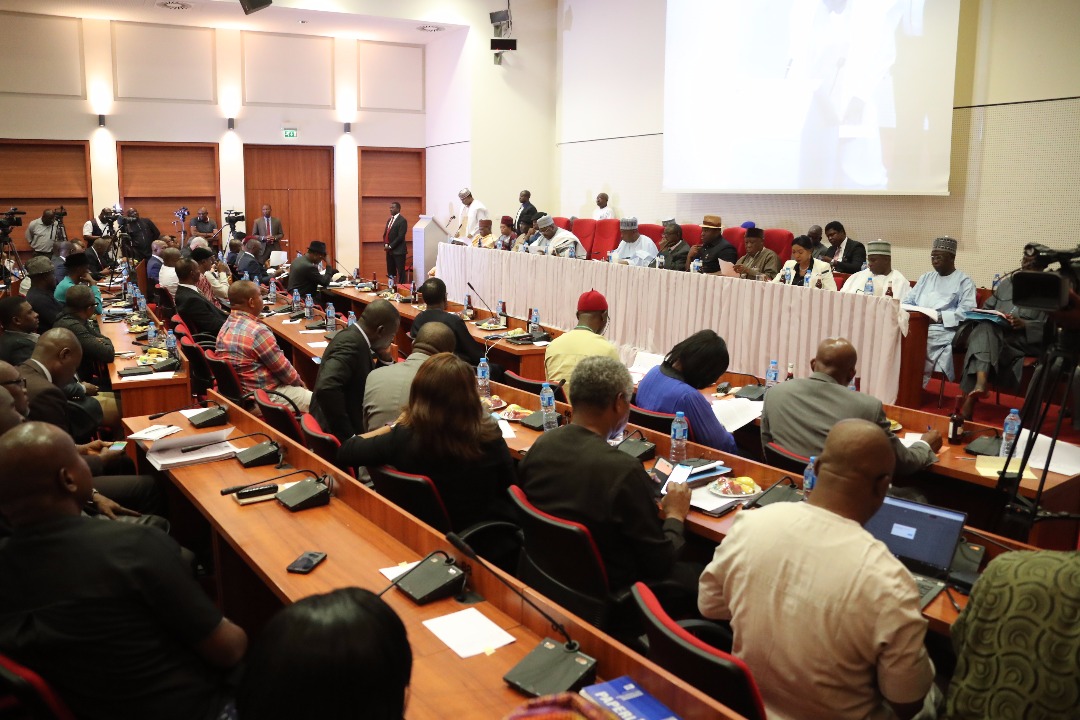
9. Last but not least, is the Petroleum Host and Impacted Communities Bill, which provides for a legal framework for the development of the petroleum host and impacted communities. It is a pan-Nigeria Bill that will cater for communities that are hosts to upstream assets, as well as significant midstream and downstream assets and infrastructure.
10. The Petroleum Host and Impacted Communities Bill is unique because it overcomes the pitfalls of past efforts; and is structured to bring funding for the development of host communities, under the direct control of the communities themselves. We expect the Bill to make for greater harmony and partnership among the various stakeholders in the sector. I urge everyone to pay particular attention to presentations by representatives of host communities.
11. In closing, let me state that the outcome of this Public Hearing is very important to our economy and to the livelihood of all Nigerians as well as the interests of investors. We have the task of delivering these Bills which, together, will enhance the growth of our oil and gas industry, modernise our fiscal system and enhance competitiveness, while creating harmony for all stakeholders.
12. It is our expectation that, with your active participation, we will have Bills that truly reflect the aspirations of Nigerians. We have an opportunity to show that the momentous passage of the PIGB was by no means a one-off. Let us power ahead with the radical transformation of our oil and gas sector.
13. On that note, I wish you successful deliberations, as I now formally declare open the Public Hearing on the Petroleum Industry Bills.
Thank you.
THE PRESIDENT OF THE SENATE
